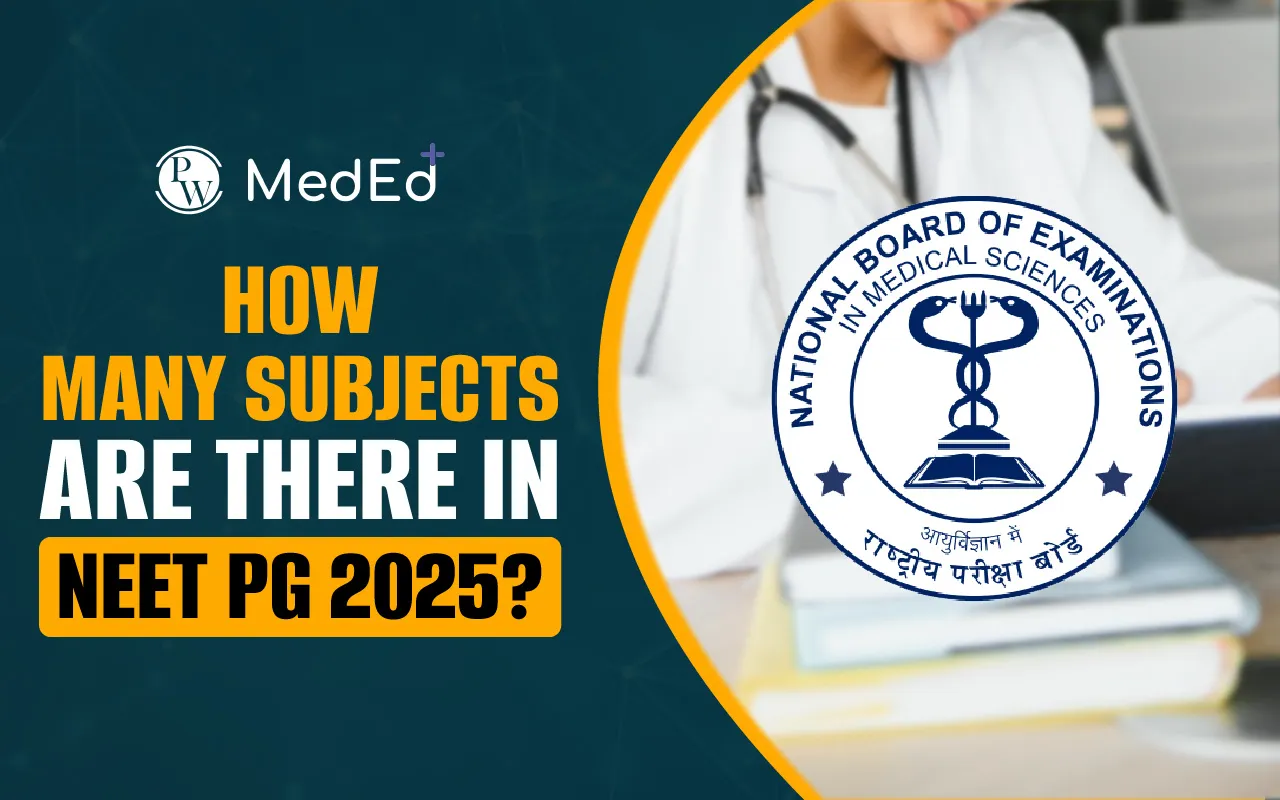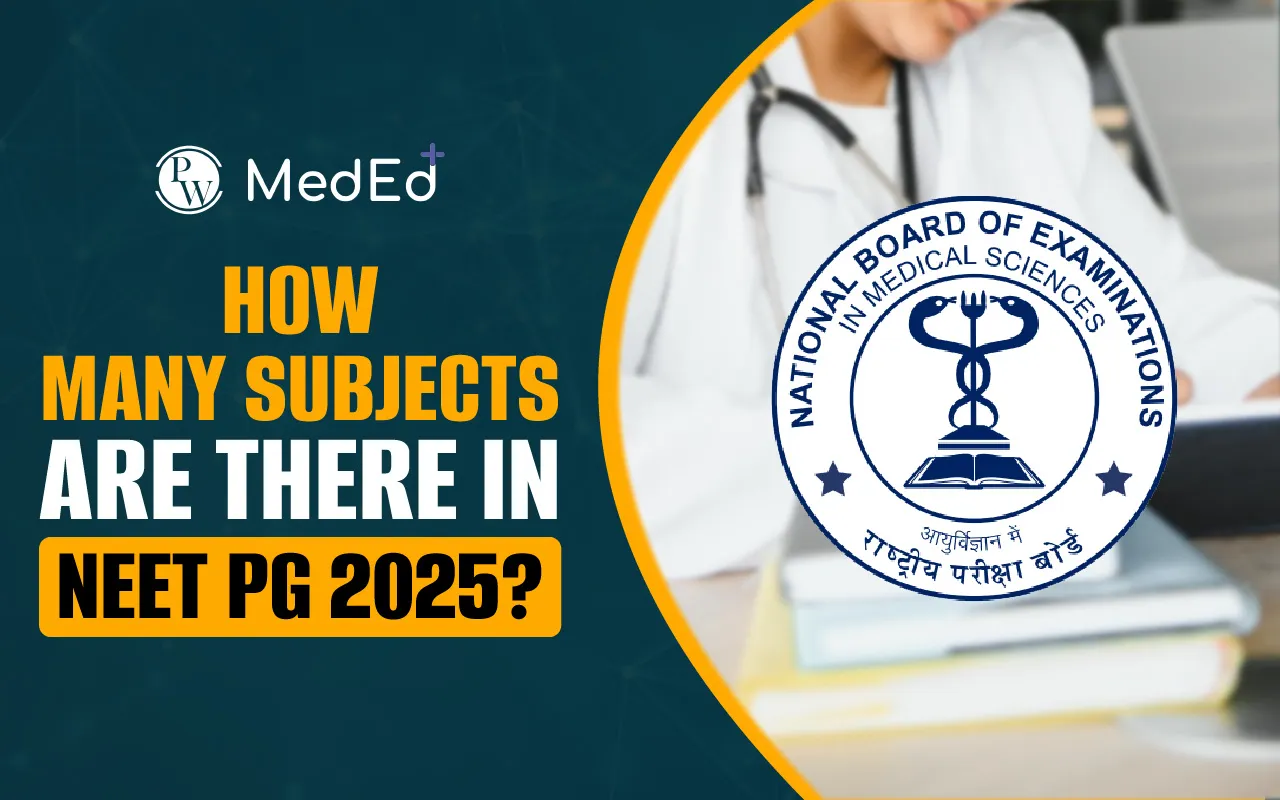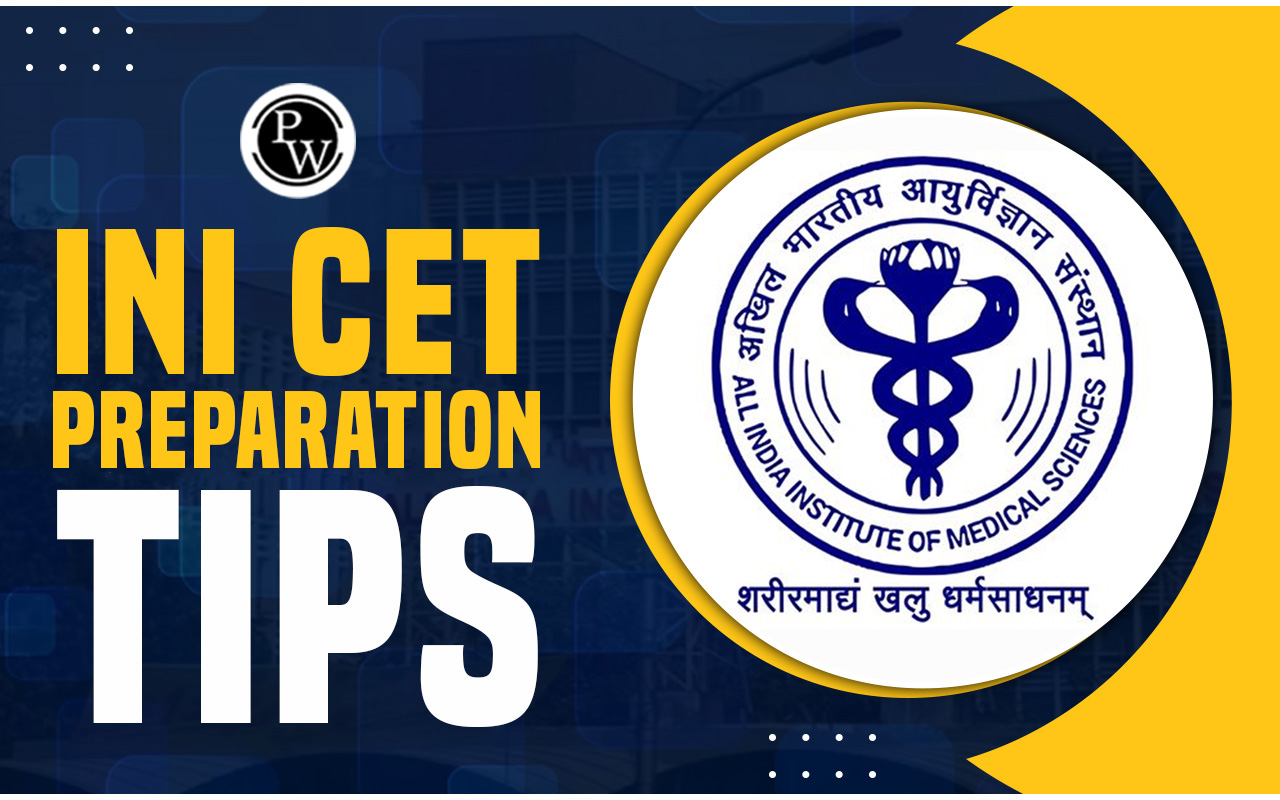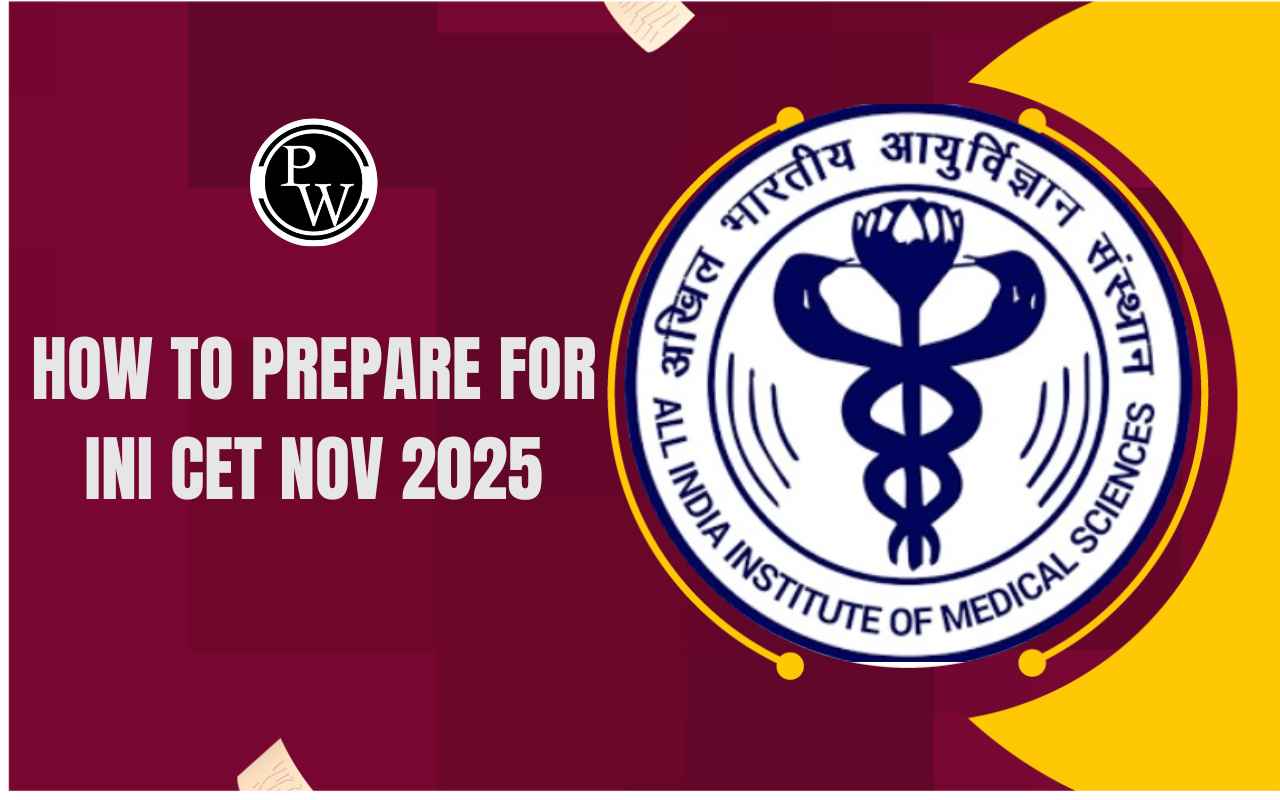

The National Eligibility cum Entrance Test for Postgraduate (NEET PG) is the gateway for MBBS graduates who wish to pursue MD, MS, or PG Diploma courses in India. Understanding the subjects included in NEET PG is essential for effective preparation and strategic planning. The NEET PG 2025 exam consists of 19 subjects, structured based on the MBBS curriculum and divided into three categories: Pre-Clinical, Para-Clinical, and Clinical. These subjects include Anatomy, Physiology, Biochemistry, Pathology, Pharmacology, Microbiology, Forensic Medicine, Preventive and Social Medicine, General Medicine, Pediatrics, Dermatology, Psychiatry, General Surgery, Orthopedics, Anesthesia, Radiology, Obstetrics and Gynecology, Ophthalmology, and ENT. Understanding the distribution and weightage of each subject is crucial for effective preparation, as Clinical subjects generally account for the largest portion of the exam. A focused, structured approach, including regular revision and practice with MCQs, is essential for excelling in NEET PG 2025.
Total Number of Subjects in NEET PG
The NEET PG exam is structured based on the MBBS curriculum as per the Medical Council of India (MCI) guidelines. There are a total of 19 subjects in NEET PG, covering all three phases of MBBS: Pre-Clinical, Para-Clinical, and Clinical.
Total 19 Subjects in NEET PG 2025
NEET PG 2025 comprises a total of 19 subjects, which are strategically categorized into Pre-Clinical, Para-Clinical, and Clinical sections. These subjects cover the entire spectrum of medical education, from basic sciences like Anatomy and Physiology to specialized areas such as Surgery, Medicine, and Radiology. A strong understanding of all 19 subjects is essential for cracking the exam and securing a top rank.
List of 19 Subjects in NEET PG
The NEET PG exam covers a wide range of subjects essential for medical professionals. Below is a comprehensive list of the 19 subjects included in the NEET PG syllabus, divided into pre-clinical, para-clinical, and clinical categories.
Pre-Clinical Subjects
-
Anatomy
-
Physiology
-
Biochemistry
Para-Clinical Subjects
-
Pathology
-
Pharmacology
-
Microbiology
-
Forensic Medicine
-
Preventive and Social Medicine (PSM)
Clinical Subjects
-
General Medicine
-
Pediatrics
-
Dermatology
-
Psychiatry
-
General Surgery
-
Orthopedics
-
Anesthesia
-
Radiology
-
Obstetrics and Gynecology (OBG)
-
Ophthalmology
-
ENT (Ear, Nose, and Throat)
Subject-Wise Weightage in NEET PG
The NEET PG exam consists of 200 multiple-choice questions (MCQs). The weightage of subjects varies slightly every year but follows a general pattern:
-
Pre-Clinical Subjects: 15-20% of the total questions
-
Para-Clinical Subjects: 25-30% of the total questions
-
Clinical Subjects: 50-55% of the total questions
|
Subject |
Maximum Questions |
Maximum Marks |
|
Section A (Pre-Clinical) |
||
|
Anatomy |
16 |
64 |
|
Physiology |
16 |
64 |
|
Biochemistry |
13 |
52 |
|
Section B (Para-Clinical) |
||
|
Pathology |
17 |
68 |
|
Pharmacology |
13 |
52 |
|
Microbiology |
13 |
52 |
|
Forensic Medicine |
17 |
68 |
|
Social and Preventive Medicine |
5 |
20 |
|
Section C (Clinical) |
||
|
General Medicine (including Dermatology, Venereology & Psychiatry) |
30 |
120 |
|
General Surgery (including Orthopedics, Anesthesia & Radiology) |
30 |
120 |
|
Obstetrics and Gynecology |
20 |
80 |
|
ENT |
30 |
120 |
|
Ophthalmology |
3 |
12 |
|
Pediatrics |
3 |
12 |
NEET PG 2025 Category wise Subjects
NEET PG 2025 syllabus is divided into 19 subjects, grouped into Pre-Clinical, Para-Clinical, and Clinical categories. Each group serves a distinct purpose in medical education—from building core concepts to applying knowledge in real-life patient care. Here's a table summarizing each category, its subjects, and their role in the exam preparation.
|
NEET PG 2025 Category wise Subjects |
||
|
Category |
Subjects |
Description |
|
Pre-Clinical Subjects |
Anatomy Physiology Biochemistry |
Focus on foundational concepts of human body structure and functions. |
|
Para-Clinical Subjects |
Pathology Pharmacology Microbiology Forensic Medicine Preventive & Social Medicine (PSM) |
Bridge the gap between basic science and clinical application. |
|
Clinical Subjects |
General Medicine Pediatrics Dermatology Psychiatry General Surgery Orthopedics Anesthesia Radiology Obstetrics & Gynecology (OBG) Ophthalmology ENT (Ear, Nose & Throat) |
Centered on patient care, diagnosis, treatment, and real-world medical practice. |
Important Topics Subject wise for NEET PG 2025
Human Anatomy, Biochemistry, and Physiology are fundamental subjects in medical education, forming the core foundation of understanding the human body's structure, functions, and biochemical processes. Mastering these subjects is essential for medical students to grasp the more advanced concepts encountered in clinical medicine. Below is an overview of the key topics covered in each subject:
|
Human Anatomy |
Biochemistry |
Physiology |
|
The thorax |
Structures and functions of proteins and enzymes |
Digestion and absorption |
|
The abdomen |
Bioenergetics and metabolism of carbohydrates and lipids |
Respiration |
|
The pelvis |
Metabolism of proteins and amino acids |
Cardiovascular physiology |
|
The perineum |
Structures, functions, and replication of macromolecules |
Nervous system |
|
The upper limb |
Biochemistry of extracellular and intracellular communication |
Excretion |
|
The lower limb |
Nutrition, digestion, and absorption |
Endocrine system |
|
The head and neck |
Vitamins and minerals |
Sensory organs |
|
The back |
Muscles and the cytoskeleton |
Muscles |
|
Miscellaneous topics |
Plasma proteins and immunoglobulins |
----------- |
| ----------- |
Homeostasis and thrombosis |
----------- |
| ----------- |
Red and white blood cells |
----------- |
| ----------- |
Metabolism of xenobiotics |
----------- |
| ----------- |
The human genome project |
----------- |
| ----------- |
Miscellaneous topics |
----------- |
Why Understanding All 19 Subjects is Crucial?
Grasping all 19 subjects is essential to scoring well in NEET PG. The competition is high, and a balanced preparation strategy helps cover all important areas of the exam. Knowing which topics carry more weight can help candidates prioritize their study plan and manage time effectively.
Important Notes
NEET PG 2025 covers 19 subjects grouped under Pre-Clinical, Para-Clinical, and Clinical categories. Understanding subject-wise weightage and focusing on key topics can significantly improve your overall score.
-
NEET PG 2025 includes 19 subjects divided into Pre-Clinical, Para-Clinical, and Clinical groups.
-
The exam has 200 MCQs, and each subject has varying weightage.
-
Focusing on high-weightage subjects like Medicine, Surgery, and PSM is important.
Effective Preparation Tips for NEET PG Subjects
To excel in NEET PG, candidates should focus on a structured preparation strategy:
-
Prioritize High-Weightage Subjects: Allocate more time to clinical subjects while ensuring strong fundamentals in pre-clinical and para-clinical subjects.
-
Use Standard Reference Books: Rely on authentic textbooks and guides for conceptual clarity.
-
Regular Revision: Consistent revision is crucial for retaining the vast syllabus.
-
Practice MCQs and Mock Tests: Solve previous years’ question papers and mock tests to improve accuracy and time management.
Why Is It Important to Understand NEET PG Subjects?
Having a thorough understanding of all 19 subjects helps aspirants prepare in a balanced manner and boosts their confidence. As competition increases each year, a well-planned approach and time management can significantly enhance the chances of securing a top rank in NEET PG 2025.
By knowing the structure, weightage, and preparation techniques, aspirants can streamline their studies and maximize their performance in the exam.
FAQs
How many subjects are there in NEET PG 2025?
What are the key subjects in NEET PG 2025?
What is the weightage of subjects in NEET PG 2025?
How should I prepare for NEET PG 2025?
Why is understanding NEET PG subjects important?











